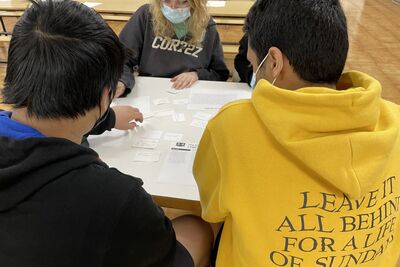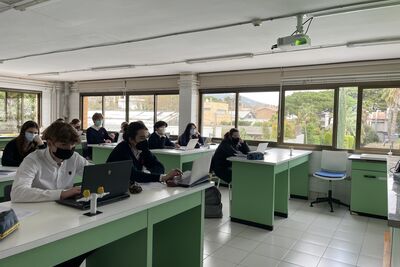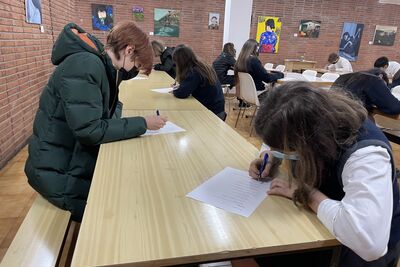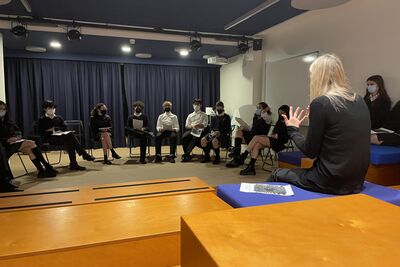Revision Workshops
During the last two weeks of March all students in Forms 5 and above sat mock exams in the gym. Mock exams are crucial preparation for their up-coming GCSE, AS and A level exams that will start in May. Not only do they give students experience of the actual exam environment, they also give guidance as to what topics the students need to concentrate their revision on in the important weeks before the official exams. To help students prepare for these exams, we organised a Revision and Support Strategies Workshop consisting of three sessions.
Making a Revision Timetable
The foundation of a strong performance in exams is strategic organisation of time in the weeks and months that precede the big days. Having a meaningful revision timetable, which ensures that all topics are covered in depth, helps students to feel calmer and in control. When devising the revision timetable, three questions are key: when exactly am I going to work and for how long can I reasonably expect myself to concentrate? How much can I reasonably expect to get done in a session? How can I divide up my subject into topics and sub-topics to ensure I cover and revisit all topics in the time I have available? With Mr Voller, students went through these questions systematically and began to produce a digital revision timetable, which they were then expected to complete in their own time. Resources and timetables are on Google Classroom.
Coping with Exam Stress
Students were encouraged to consider their own wellbeing leading up to, during and following the exam period, bearing in mind especially that this would be the first year they had sat official exams. Ms Williams and Ms Coffey gave students practical advice about mobile phone use, healthy eating and sleeping habits, and prompted them to recall resources available such as meditation and breathing exercises and techniques. More information was posted on the Google Classroom created especially for these revision workshops.
Making Effective Use of Flashcards to Revise
Most teachers recommend students use flashcards to help them with revision but they are only of use when used effectively. In Ms Canwell’s practical session, the students, working in teams, had 20 minutes to prepare and use flashcards from a text they were presented with for the first time. At the end of the 20 minutes they sat a small test to see how much knowledge they had retained. Hopefully the session gave them a small glimpse of how powerful the use of flashcards can be to learn and recall facts and formulas. Many students were able to answer over 80% of the questions correctly - the winning teams from each form were:
Form 5 – Teresa, Rebecca, Elsa
Lower 6 – Lydia, Ananya, Aya, Nanya
Upper 6 – Richard, Marco, Saevar, Lara
Share









